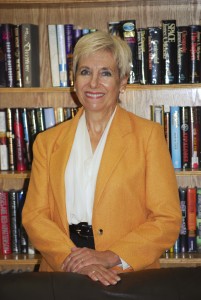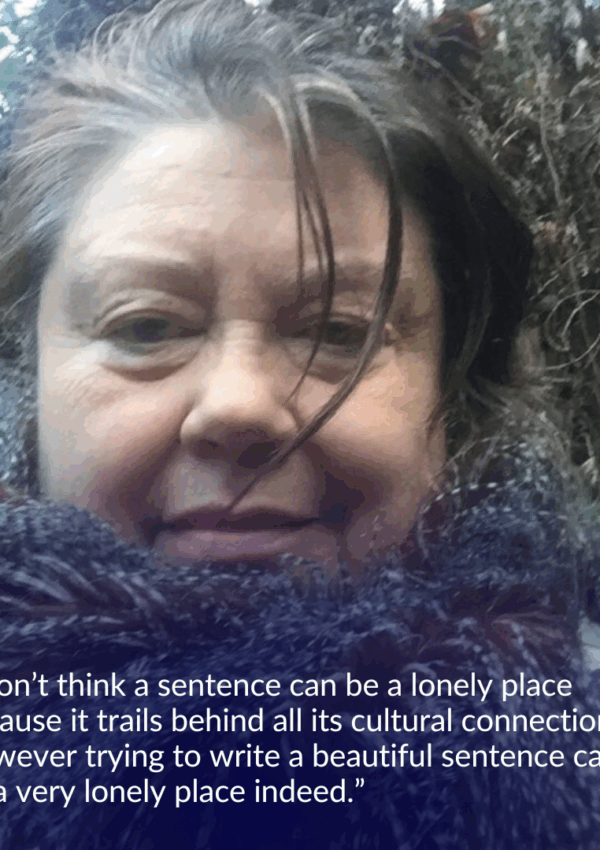Taking a break from writing, I flip the television channels and my eyes and remote land at a bright-screen, an urban setting with upbeat music, slick high-rises, and smartly dressed people hurrying about. A respite from the moody brown tones of intellectual films, the images are sharp, and the primary colors refresh my senses.
I’m writ out on the current project, but, watching the fluff, my writer’s/editor’s brain can’t shut off. At the introduction of the heroine, who is always the main character, I already know the whole plot. In case you want to try writing one of these movies (if your script is accepted, they probably pay well), here are the essential ingredients. They may also serve as lessons in cliché-avoidance for all of us.
Heroine
25-35 years old. Slim, fashionable, able to run and bound up office stairs in
sexy stiletto heels. Wears one-piece dresses that end at high thigh, with zippers down her entire back. Always tossing loose long hair, perfectly casual-curled, that reaches to her coccyx. Blonde preferred, occasional brunette, once even a redhead. Rather high voice, nasal and annoying, fetching giggle. All sentences, whatever the emotion, end on questioning inflections. Laughs way too much and bares way too many teeth, usually with too much gum.
Unhappy and stressed in fabulous apartment and well-paying, responsible corporate/legal/fashion/real estate high position. Longs for love, although previously devastated and cannot trust.
Hero
28-38 years old. Slim, strong, in shape, although we never see him working out. Ruggedly handsome. Receives the ultimate compliment from heroine’s best friend/sister/mother (see below): he’s “cute.” Slightly irregular features (which make him more irresistible), chin stubble, crew cut, or with naughtily longer hair. Workingman casual clothes, usually same in every scene. Hands in pockets a lot. Dropped out of corporate/establishment/prestigious/high-paying position to pursue passion (woodcarving, beekeeping, curio-shop owning, llama-raising). Maverick, daring, flings protocol out the pickup-truck window. Whenever with heroine, laughs way too much, baring too many teeth.
Setting
Starts in big bad frenzied city (New York, Chicago, Philadelphia). Moves to small cozy quaint charming small town with farmlands or inlets (Finnegan’s Falls, Appletree Valley, Sweet Pear Dale, Cranberry Cove, Harry’s Hamlet).
Conflict
Heroine/hero is sent by profit-minded corporation to assess and recommend destruction of small cozy quaint town major business (bakery, diner, handmade toy factory, B&B with town and family history) to build shopping supermall, ten-star resort, or luxury multi-story condo development to spur local dying economy and guarantee jobs to all the townsfolk. Hero fights, citing local values and loyalties.
How They Meet
In coffee shop, waiting on line heroine texts and bumps into hero. In car, hero on cell phone hits heroine’s rear bumper. In airport, rushing hero knocks down heroine. In department store, rushing heroine at lunch hour knocks down hero.
Other Man/Woman
Has been in relationship with heroine/hero, from long-term to short. See separate descriptions below. Heroine/hero lukewarm but hasn’t expressed it. Other M/W assumes they are a couple and makes plans for weekend trips (flashing tickets) and European jaunts (flashing tickets); hints at marriage (flashing smile). Heroine/hero keeps reluctantly agreeing to dates but furrows brow and sighs deeply in restroom.
Other Man: Good looking enough, stable, straight-laced, successful professionally and financially, always wears suits, hair slicked back, basically decent (or an a-hole). Often self-centered and career-oriented. Can’t or refuses to read heroine’s constant hesitations. Wants relationship because “we make a great team; you’re just what I need to get ahead.” Heroine’s mother thinks he’s perfect.
Other Woman: Stunning, thin, stylish, hard, bossy, professionally and financially successful, always wears high-fashion outfits to die for, beats out heroine’s stilletos. Self-centered and career-oriented. Wants relationship with hero because “We’ll be the ultimate power couple. In two years, we can take over the company.” Hero’s mother doesn’t like her.
Best Friend/Sister/Mother
Long-term confidante of heroine (hero often has male counterpart). See separate descriptions below. Sane, sensible, sees heroine’s attraction to hero long before she lets herself admit it. Clothes consultant to heroine. Pep-talker to heroine about taking the Big Leap of Faith.
Best Friend/Sister (sometimes Office Assistant): Somewhat frumpy (may wear glasses) so as not to outshine heroine. No heels. May be in stable relationship or married as role model to heroine. BF/S’s husband/boyfriend appears tangentially with affectionate pats on tush of BF/S while she listens to heroine pouring out misgivings in kitchen.
Mother: Somewhat stylish but never outshines heroine. Low heels. Shorter hair by at least two inches than heroine but also long and loose. Overprotective, varying degrees of control and judgment (about heroine’s hair, heels, weight, lifestyle, single status). Wants grandchildren, keeps referring to “your father, and I miss him every day. We had a wonderful thirty-two years together,” implying why can’t heroine do the same. Good-hearted, face-lifted.
Kid
Heroine or hero’s child of marriage (spouse tragically passed) /divorce (spouse monstrously and inexplicably walked out). Kid is anywhere from six to fourteen. Cute to make your teeth grate. Constant extraordinarily wise observations heroine/hero’s actions, nonactions, body language, and closet quandaries before first date. Calls it like it is with H/H, to all adults’ acute embarrassment. Reluctant to bond, but H/H eventually wins her/him over.
Backstory
Coincidences that stretch credulity. Heroine’s best friend’s sister-in-law knew hero in college and worshipped him. Hero dated heroine’s third cousin at summer camp and heard all about heroine. Heroine and hero shared nap blankies in pre-pre-school. You’re too sugar-logged to care or question.
Dialogue
The dialogue always sparkles with sameness.
Cell phone rings: Heroine looks down at it. “I have to take this,” and walks away.
Reaction to unveiling of gorgeous gown, genius painting, four-layer cupcake, prize pumpkin: “Amazing!”
Answer/question to any statement of (supposed) fact: “You know that how?”
Response to any piece of news and in quick succession: “Wait—what?”
Heroine after best friend/sister/mother notices her glow talking about hero: “I do not like him!”
Heroine falls six stories into industrial waste dumpster. Hero runs over: “Are you okay?”
Any comment from Kid: “Cool.”
The Blowup
Twenty-two minutes from the movie’s end, heroine and hero clash in a massive (and requisite) argument. It is fueled by a misunderstanding, misinterpretation, unspoken doubts, spiteful rumors by the jealous Other Woman (see above), or all four. Heroine refuses to listen to hero’s alibi. Hero refuses to apologize. Both refuse to explain. Turn their backs on each other, muttering “Impossible!” and stomp out of coffee shop by separate exits. You’re sure it’s all over.
The Reconciliation
Twelve minutes from the movie’s end, best friend/sister/mother convinces heroine to give him another chance. A meeting is arranged, and they face each other, stutter, talk at the same time, look at their shoes, clear their throats, hem and haw until something finally breaks through. “You mean…?” They embrace (no kissing yet). Best friend/sister/mother beams in background.
Sex/Kiss
Sex: Never. Closest they get is fingertips sticking over cotton candy at county fair.
Kiss: Several close calls but interrupted by hopeful mother, precocious child, or child’s annoying dog. After reconciliation, the only kiss takes place sixteen seconds before zoom-out. Kiss requirements: Clinch moderately strong, never mouth-devouring, and never, never with heroine’s leg wrapped around hero’s waist. At lip-meet, camera pulls back over arching trees in full bloom, butterflies flit, violins crescendo, fade out. You know they’ll live HEA (happily ever after).
Lingering Questions
After Blowup and stammering Reconciliation, finding her “calling,” heroine gives up the city corporate life, moves to the small town of her hunky farmer fiancé, commandeers the harvest, and organizes the weekly Sunday farmer’s festival. But what happens when the sex wears off? Will prize tomatoes suffice?
And what about the hero’s dream of becoming an entomologist? Will he take a correspondence course and turn the barn into an ant farm? Will he have time for farming? Will Bartleby the cow be displaced?
And the heroine’s mother: will she be happy trying to organize bridge games among the farmers’ wives? Will she miss the boutique shops and buy out the designer labels in the general store?
We are left to accept HEA or wonder.
It’s a Wrap
These elements are the basic fondant of TV romance movies. Inanity meets ineptitude. If you want to write these things, go for it. You may have a good chance of publication, movie-TV rights, money. If this is not want you want to write, then, like me, watch these shows so you can get really pissed.
 Author, editor, writing coach and consultant, spiritual counselor, nurturer, bolsterer, motivator, reassurer, and handholder for mainstream and scholarly writers, Noelle Sterne is the author of writing craft, spiritual, and academic articles. She has published over 400 pieces in print and online venues, including Author Magazine, Chicken Soup for the Soul, Children’s Book Insider, Graduate Schools Magazine, InnerSelf, Inside Higher Ed, Inspire Me Today, Mused, Pen and Prosper, Ruminate, Transformation Coaching Magazine, Romance Writers Report, Two Drops of Ink, Unity Magazine, Women in Higher Education, Women on Writing, Writer’s Digest, and The Writer. With a Ph.D. from Columbia University, Noelle has for 30 years helped doctoral candidates wrestle their dissertations to completion (finally). Based on her practice, her Challenges in Writing Your Dissertation: Coping with the Emotional, Interpersonal, and Spiritual Struggles (Rowman & Littlefield Education, September 2015) addresses students’ often overlooked or ignored but crucial nonacademic difficulties that can seriously prolong their agony. In Noelle`s Trust Your Life: Forgive Yourself and Go After Your Dreams (Unity Books, 2011), she draws examples from her academic consulting and other aspects of life to help readers release regrets and reach lifelong yearnings. Visit Noelle at www.trustyourlifenow.com
Author, editor, writing coach and consultant, spiritual counselor, nurturer, bolsterer, motivator, reassurer, and handholder for mainstream and scholarly writers, Noelle Sterne is the author of writing craft, spiritual, and academic articles. She has published over 400 pieces in print and online venues, including Author Magazine, Chicken Soup for the Soul, Children’s Book Insider, Graduate Schools Magazine, InnerSelf, Inside Higher Ed, Inspire Me Today, Mused, Pen and Prosper, Ruminate, Transformation Coaching Magazine, Romance Writers Report, Two Drops of Ink, Unity Magazine, Women in Higher Education, Women on Writing, Writer’s Digest, and The Writer. With a Ph.D. from Columbia University, Noelle has for 30 years helped doctoral candidates wrestle their dissertations to completion (finally). Based on her practice, her Challenges in Writing Your Dissertation: Coping with the Emotional, Interpersonal, and Spiritual Struggles (Rowman & Littlefield Education, September 2015) addresses students’ often overlooked or ignored but crucial nonacademic difficulties that can seriously prolong their agony. In Noelle`s Trust Your Life: Forgive Yourself and Go After Your Dreams (Unity Books, 2011), she draws examples from her academic consulting and other aspects of life to help readers release regrets and reach lifelong yearnings. Visit Noelle at www.trustyourlifenow.com



